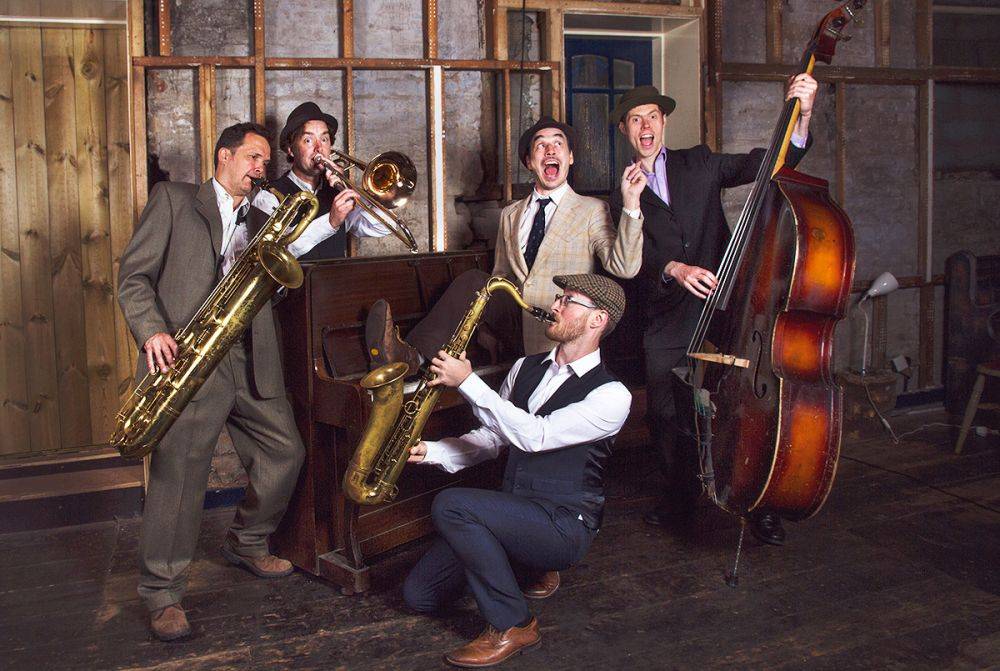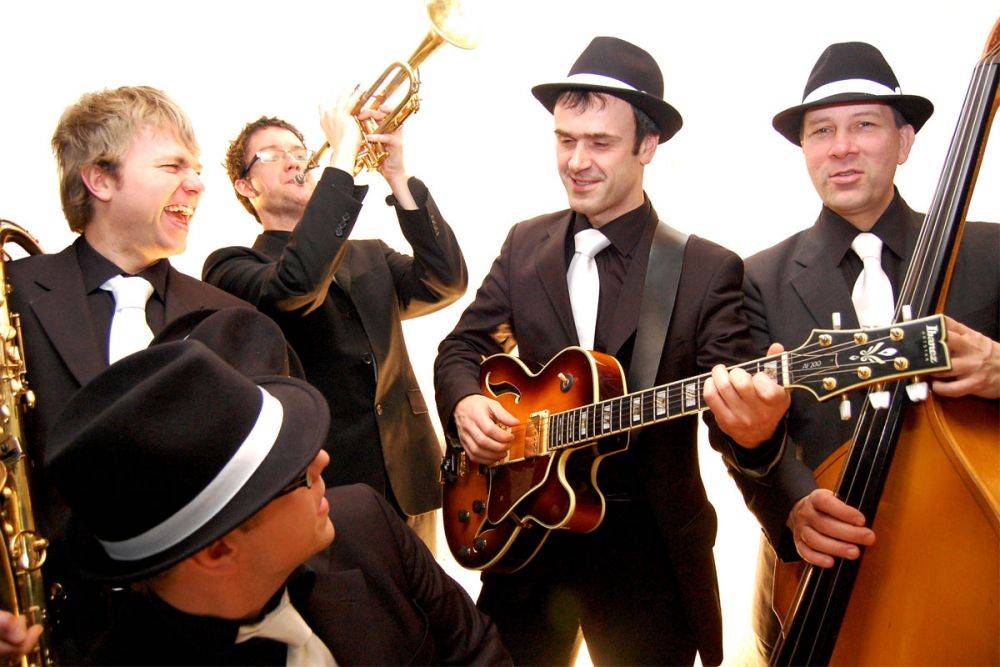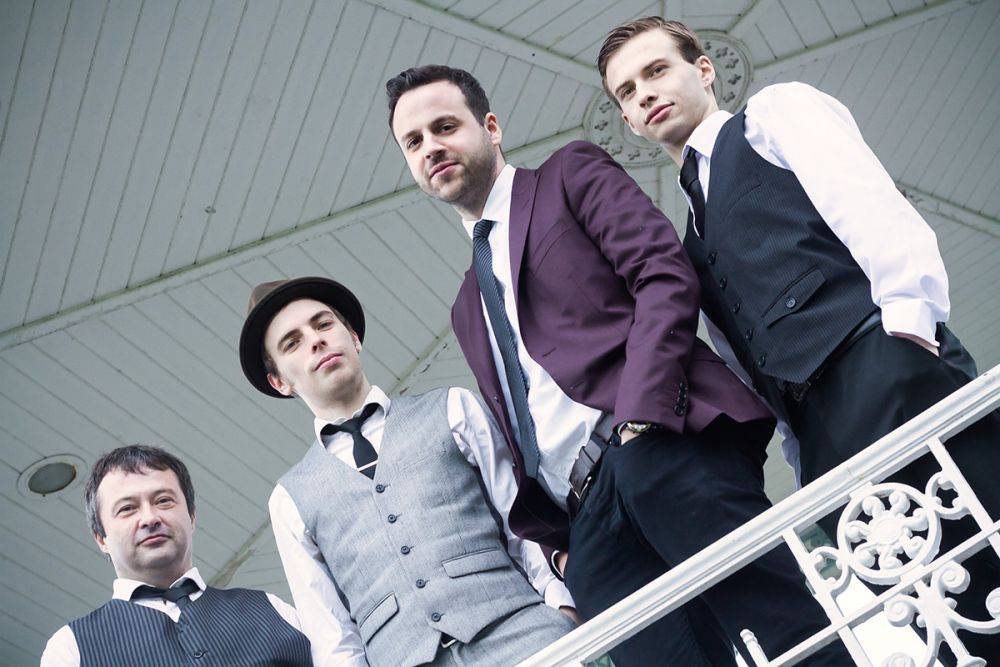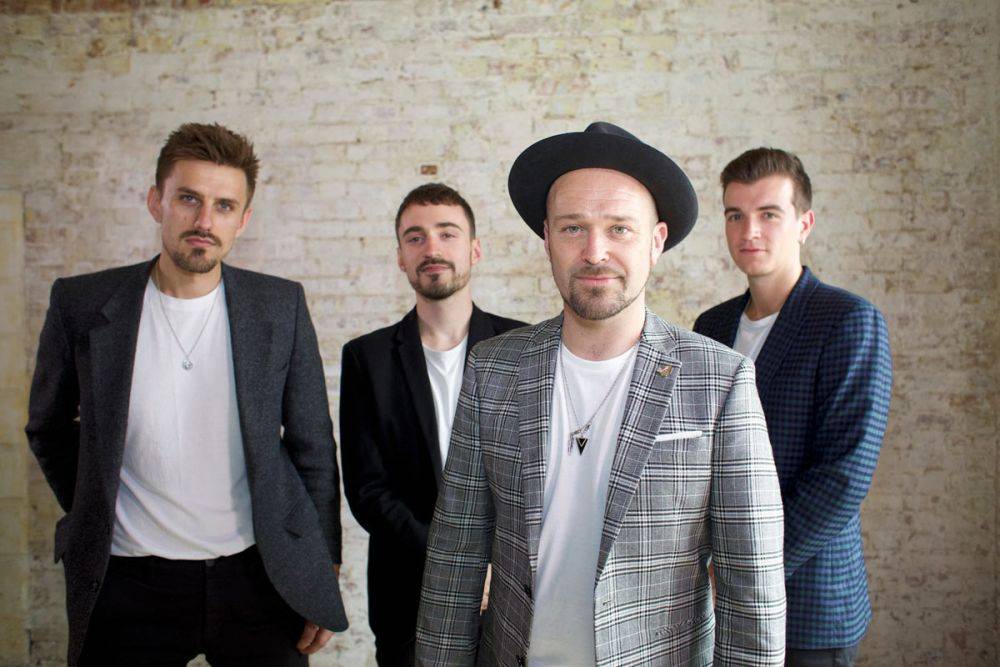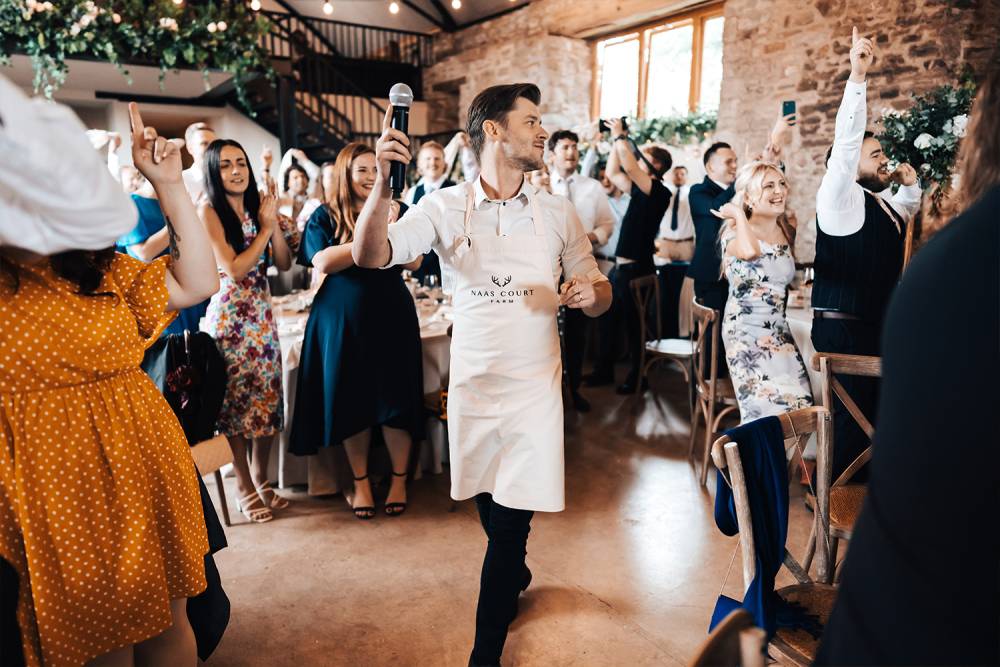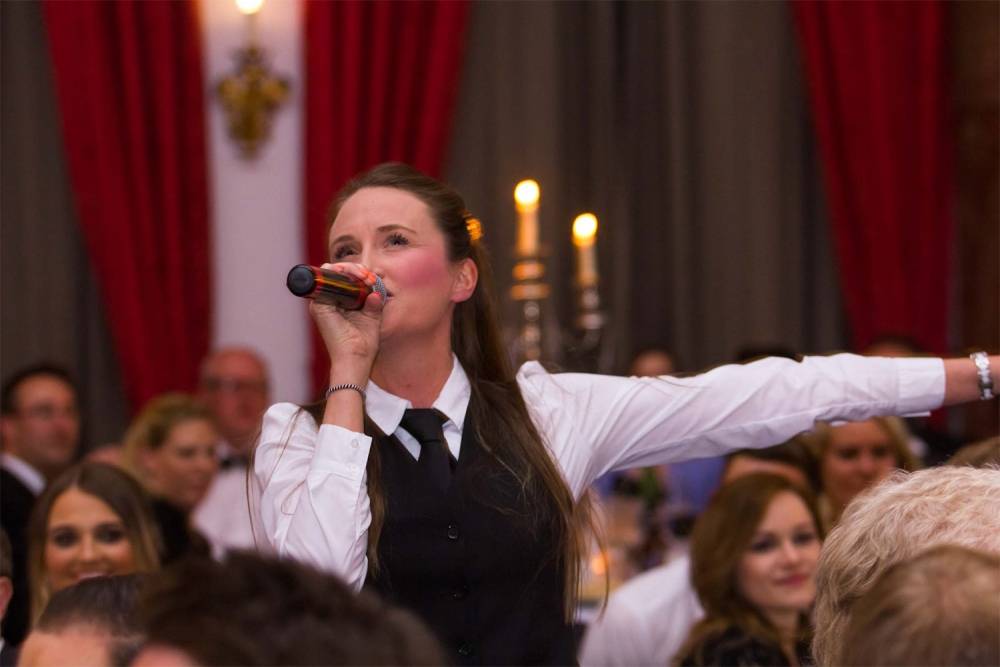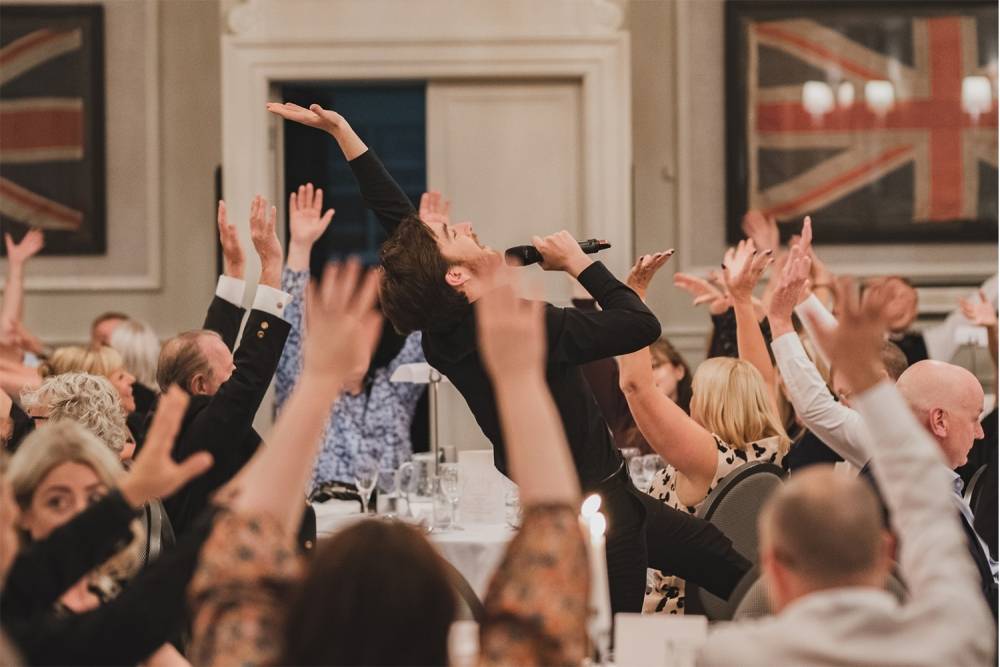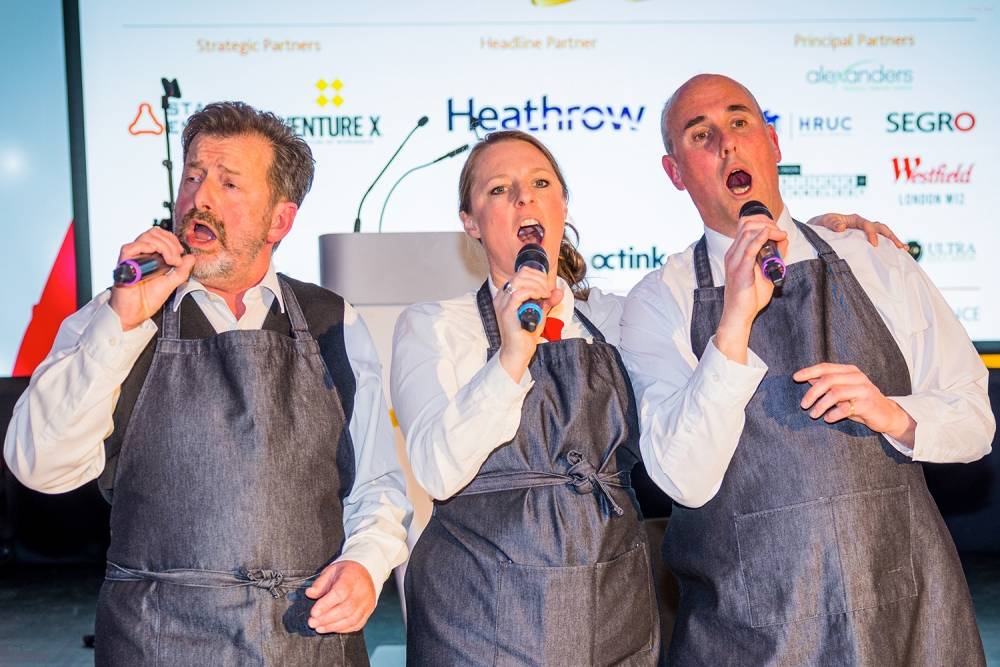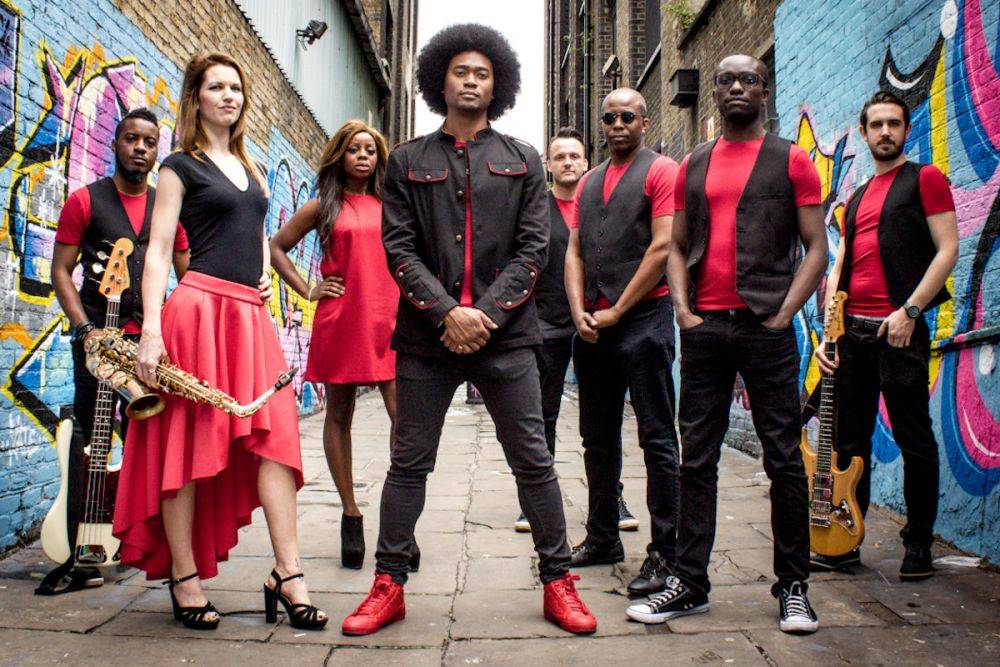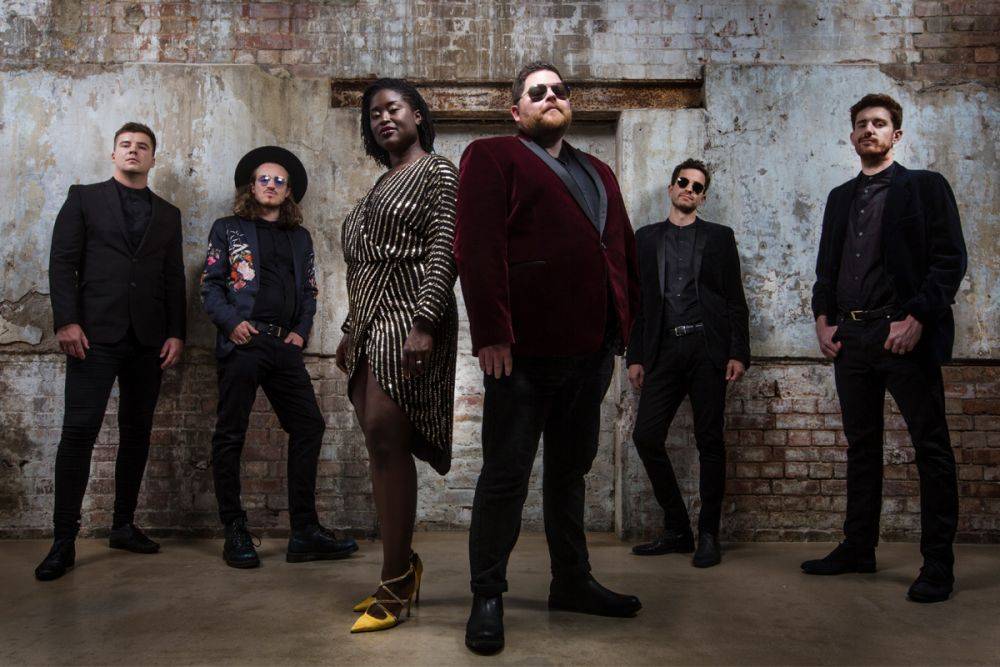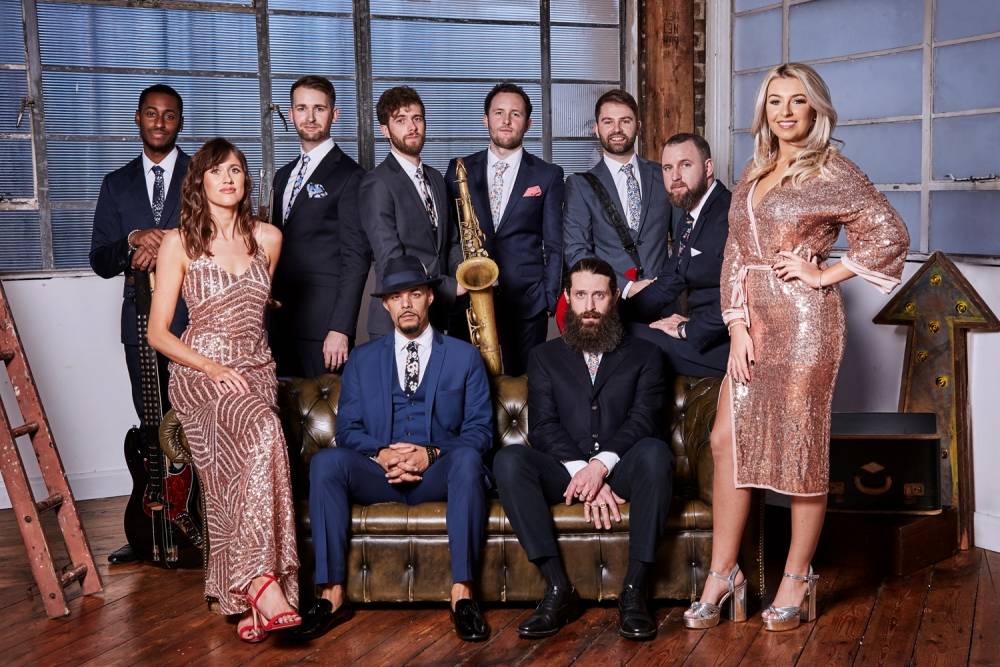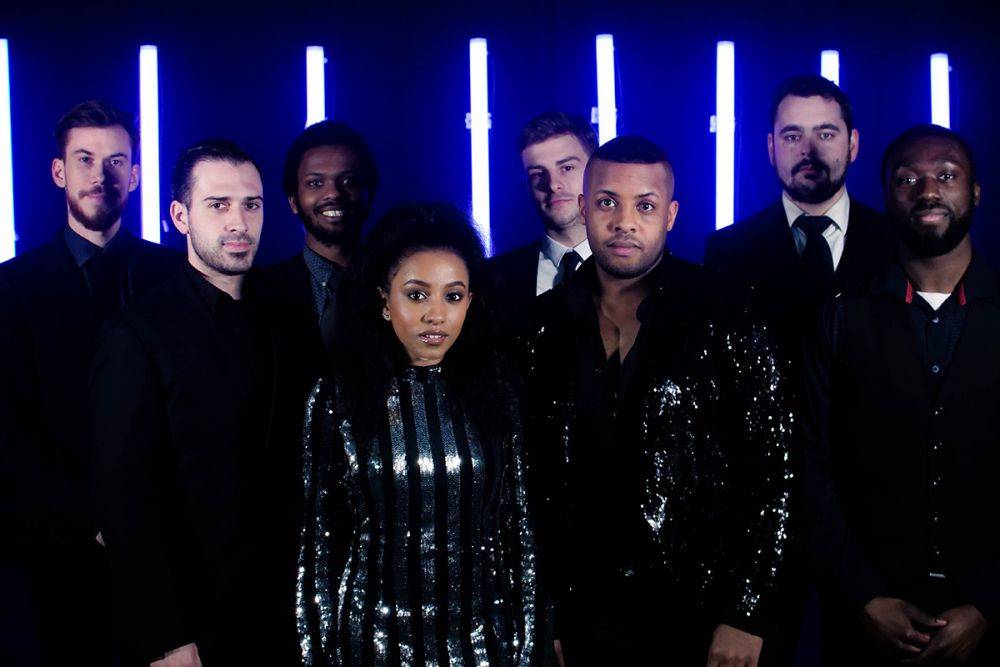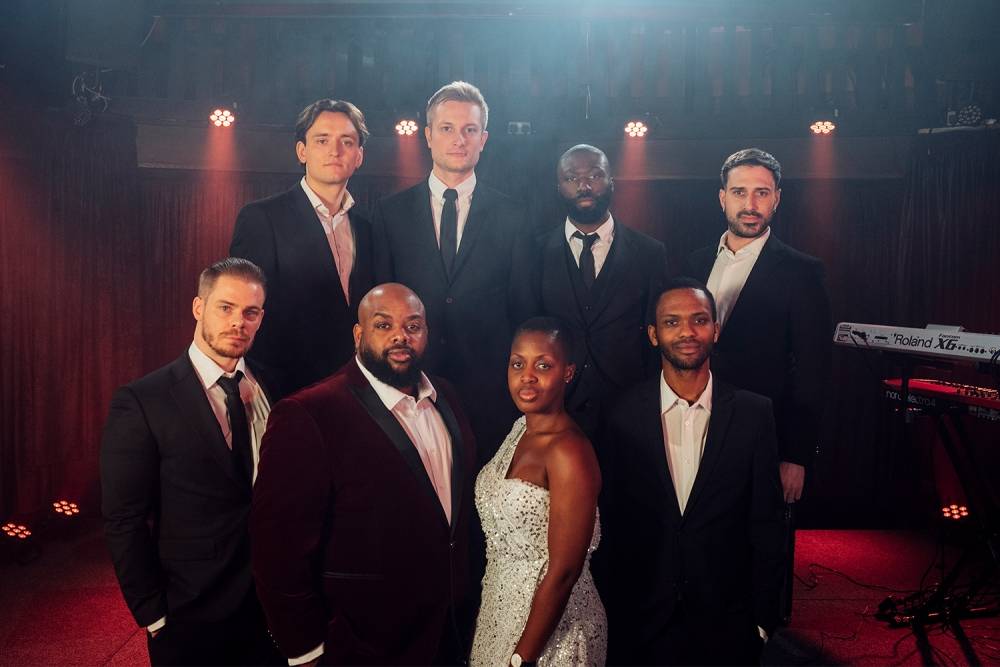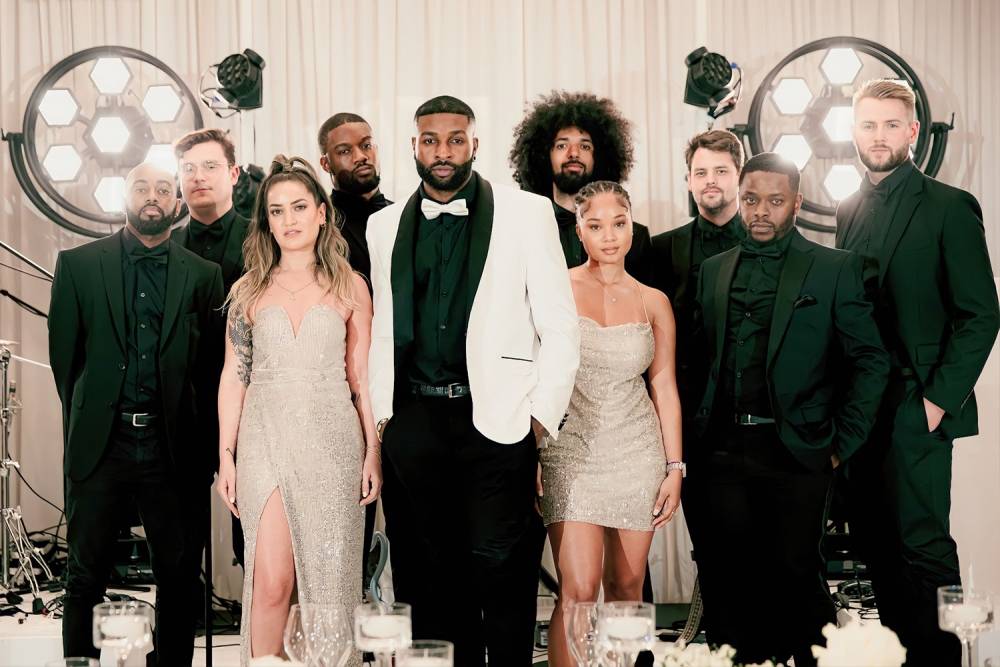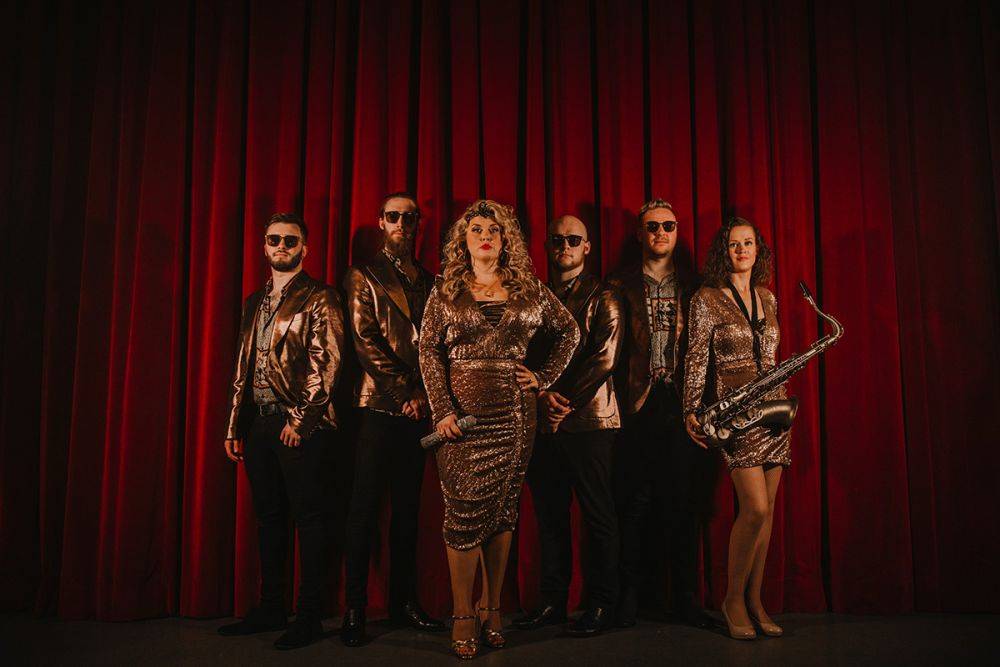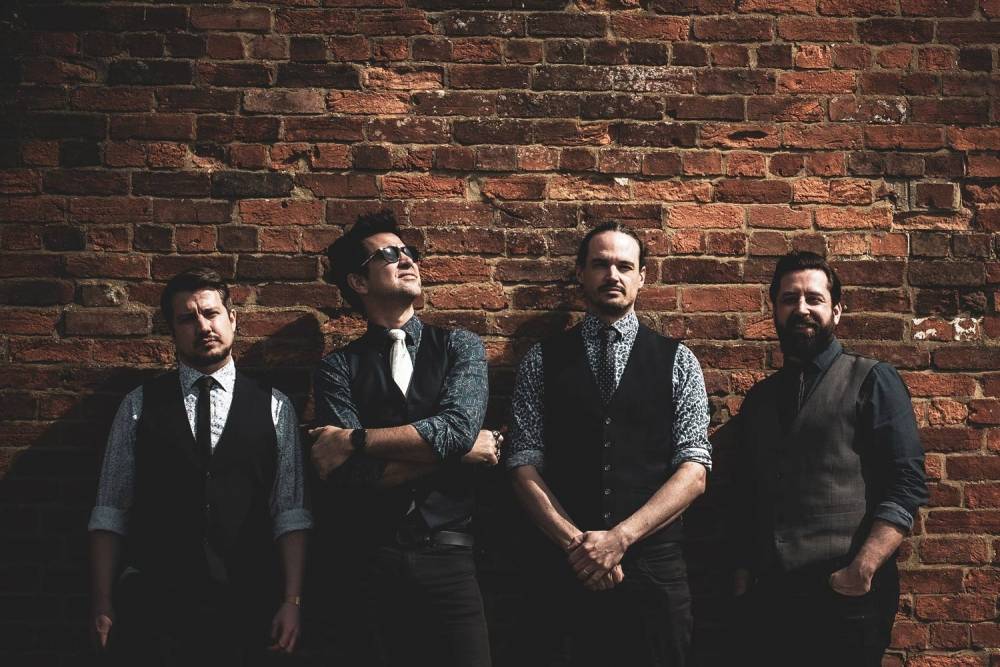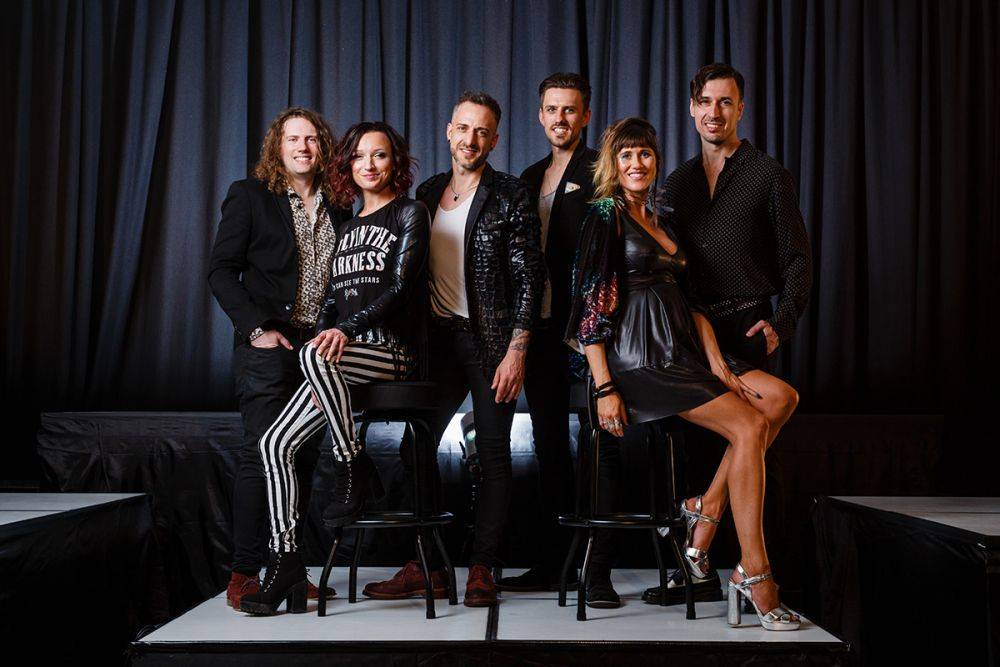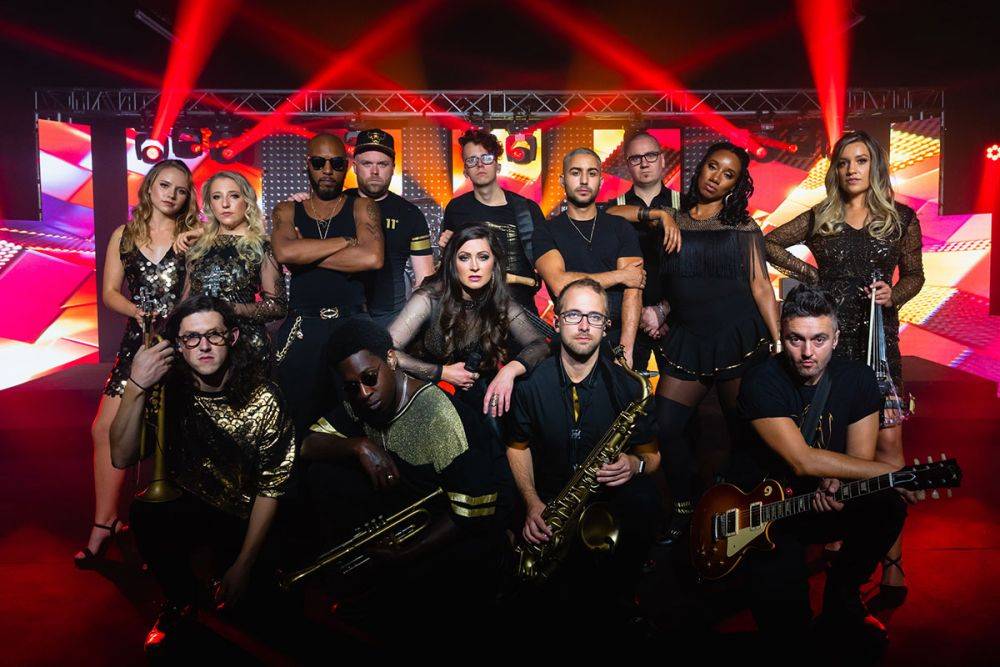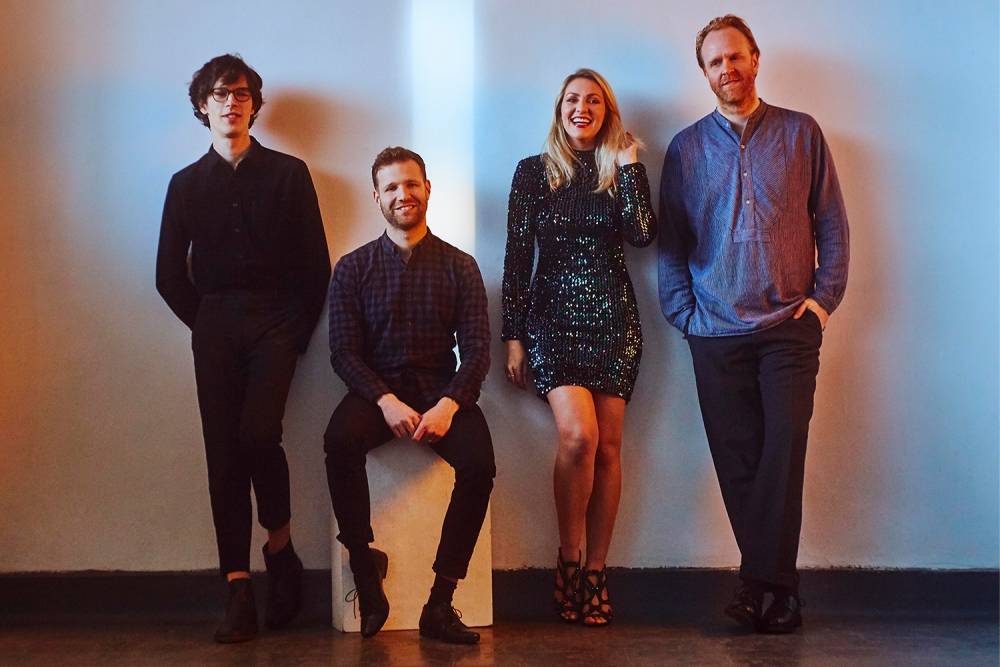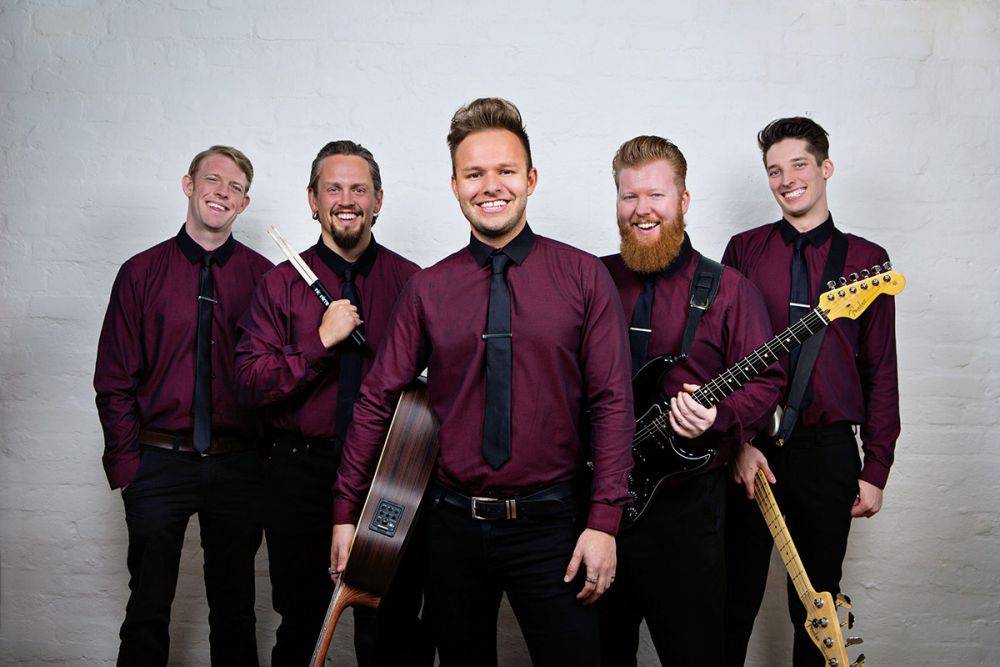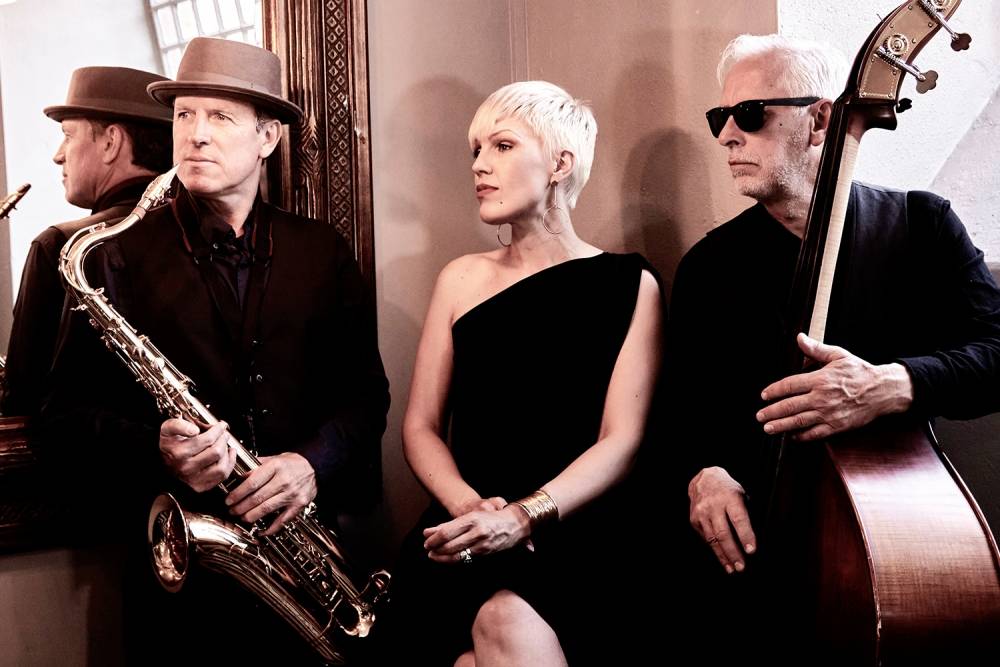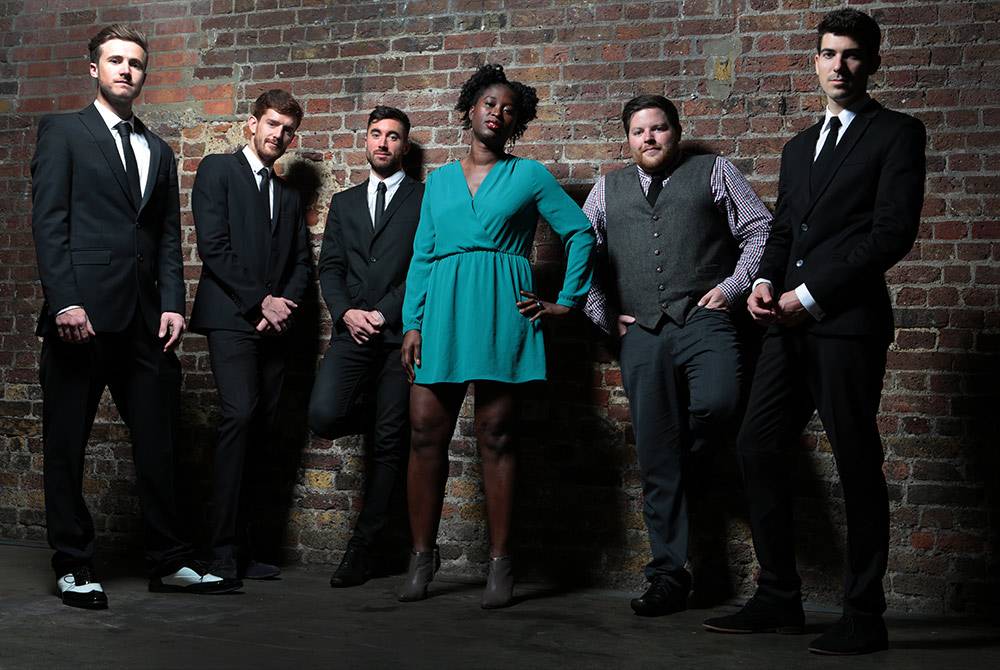
Live Music Ideas for Corporate Events
Set the perfect tone for your corporate event with these live music ideas.
- blog
- Updated: 02nd June 2025

Whether it's a summer corporate event, an awards ceremony, or a Christmas party, finding the right live entertainment is key to making a lasting impression. We look at some of the most popular corporate entertainment ideas to get the creative juices flowing.
Jazz Bands For Corporate Events
Perhaps you'll want to give the occasion an air of sophistication; Champagne and canapés on arrival and a chic jazz band in the corner - whether it's low key elegance in the form of a stripped back jazz trio or a show-stopping swing band to end the night with a bang, live jazz never fails to impress.
The genre of jazz covers a broad spectrum of music, from uptempo 1920s swing, to world famous singers from the 40s and 50s. At Bands For Hire we have a whole range of acts that include instrumental jazz bands, Gypsy swing bands, Rat Pack style bands and more. Head over to our jazz and swing bands section to see what takes your fancy.
Roaming Acoustic Bands for Outside Drinks Reception
Over the past few years there's been a growing trend towards live roaming acoustic bands, particularly within the corporate event scene. A roaming band generally consists of three of four musicians performing completely unamplified with the ability to move seamlessly around the venue.
Roaming bands can either move from one area of the venue to another, or if you're keen to get the atmosphere buzzing, they'll move from table to table, integrating with the audience and generally getting your guests in the mood for a party.
Not only is this a fresh and unique way to entertain guests, it's also a blessing for event organisers everywhere - no set up time, no space requirements and zero stress required!
For something more versatile, be sure to check out JJ & The Beatniks - a unique act that have devised a bespoke battery powered PA system with wireless technology that allows them to roam free and yet be heard by all.
Café del Mar Style Ibiza Sax
If the laid back summer Ibiza vibe is your thing, then a solo saxophonist playing the best of Cafe del Mar classics is certain to hit the spot. With a non-intrusive sound, this style of music is ideal for afternoon corporate drinks receptions or early evening gatherings. Creating a cool, laid back atmosphere, a solo sax player is the perfect way to get the ball rolling at your summer corporate party.
Live Band for Dancing
Live party bands continue to be a favourite on the corporate function scene, adding heaps of energy and creating a real sense of occasion. The options for function bands really are endless, whether you're looking for an almighty 12-piece band or a lively rockin' trio, both will be sure to entertain your guests and keep them on the dance floor. From Motown to contemporary or a complete all-rounder, we have a whole range of bands that specialise in corporate entertainment.
Live Lounge Style Acoustic Sets
For a more down to earth approach, you may want to consider some mellow acoustic vibes in the background. A solo guitarist can provide a unique blend of Classical, Flamenco and Contemporary music that will set the scene from the moment your guests arrive.
For the younger crowd, why not set your sights on something closer to Radio One's 'Live Lounge', a chilled-out acoustic band will sit nicely in the background adding a cool and fashionable edge to your evening. A band such as The Royals Acoustic will give your event a stylish twist that guests will love.
Mariachi Band for a Summer Garden Party
Forget the swarve, sleek image of a harpist or pianist - if friendly and fun entertainment is the key, then hiring a Mariachi band will bring it by the bucket load! A Mariachi band needs no explanation - think sombreros, Tequila and traditional Mexican music and you've hit the nail on the head. Find out more on our specialist Mariachi bands page.
Below is our comprehensive list of corporate musicians and bands for hire.
Corporate Jazz Bands
 From £1170
From £1170 From £1170
From £1170 From £1405
From £1405 From £1170
From £1170 From £3280
From £3280 From £715
From £715 From £945
From £945 From £880
From £880 From £685
From £685 From £1990
From £1990 From £535
From £535 From £4680
From £4680 From £1465
From £1465 From £1495
From £1495 From £1575
From £1575 From £695
From £695 From £845
From £845 From £2340
From £2340 From £550
From £550 From £1755
From £1755 From £720
From £720 From £550
From £550 From £940
From £940 From £1045
From £1045 From £650
From £650 From £650
From £650 From £550
From £550 From £490
From £490 From £935
From £935 From £1170
From £1170 From £2335
From £2335 From £715
From £715 From £820
From £820 From £775
From £775 From £425
From £425 From £720
From £720
Corporate Roaming Bands
 From £2750
From £2750 From £1290
From £1290 From £1395
From £1395 From £610
From £610 From £1640
From £1640 From £490
From £490 From £1285
From £1285 From £655
From £655 From £2485
From £2485 From £550
From £550 From £1000
From £1000 From £POA
From £POA From £1750
From £1750 From £880
From £880 From £1170
From £1170 From £1165
From £1165 From £1160
From £1160 From £995
From £995 From £995
From £995 From £880
From £880 From £595
From £595 From £1405
From £1405 From £1640
From £1640 From £1055
From £1055 From £550
From £550 From £550
From £550
Corporate Saxophonists
 From £840
From £840 From £660
From £660 From £1995
From £1995 From £425
From £425 From £365
From £365 From £490
From £490 From £490
From £490 From £370
From £370 From £495
From £495 From £595
From £595 From £650
From £650 From £370
From £370 From £490
From £490 From £490
From £490 From £550
From £550 From £550
From £550 From £500
From £500 From £425
From £425 From £500
From £500 From £500
From £500 From £550
From £550 From £550
From £550 From £300
From £300 From £425
From £425 From £450
From £450 From £495
From £495 From £610
From £610 From £340
From £340 From £365
From £365 From £490
From £490 From £340
From £340 From £400
From £400
Corporate Bands
 From £4595
From £4595 From £4050
From £4050 From £5850
From £5850 From £3630
From £3630 From £2215
From £2215 From £2050
From £2050 From £1875
From £1875 From £2050
From £2050 From £2650
From £2650 From £3335
From £3335 From £3995
From £3995 From £4450
From £4450 From £5850 + VAT
From £5850 + VAT From £5050
From £5050 From £4465
From £4465 From £5595 + VAT
From £5595 + VAT From £7725
From £7725 From £2925
From £2925 From £2685
From £2685 From £2795
From £2795 From £2070
From £2070 From £1495
From £1495 From £1545
From £1545 From £2635
From £2635 From £1295
From £1295 From £1850
From £1850 From £3745
From £3745 From £1850
From £1850 From £4095
From £4095 From £4095
From £4095 From £1395
From £1395 From £1490
From £1490 From £2075
From £2075 From £2110
From £2110 From £1640
From £1640 From £2500
From £2500 From £1350
From £1350 From £1350
From £1350 From £3995
From £3995 From £9360 + VAT
From £9360 + VAT From £3500
From £3500
Corporate Acoustic Acts
 From £2340
From £2340 From £610
From £610 From £1395
From £1395 From £365
From £365 From £495
From £495 From £515
From £515 From £260
From £260 From £595
From £595 From £490
From £490 From £775
From £775 From £1055
From £1055 From £655
From £655 From £550
From £550 From £1170
From £1170 From £490
From £490 From £785
From £785 From £785
From £785 From £1230
From £1230 From £480
From £480 From £820
From £820 From £490
From £490 From £775
From £775 From £595
From £595 From £715
From £715 From £415
From £415 From £650
From £650 From £490
From £490 From £715
From £715 From £820
From £820 From £720
From £720 From £490
From £490 From £550
From £550 From £1055
From £1055 From £490
From £490 From £1395
From £1395 From £490
From £490
Corporate Mariachi Bands
 From £490
From £490 From £995
From £995 From £490
From £490 From £880
From £880
Whatever you're looking for, we can help, so why not email across your event details and we'll get back to you the same day with a range of options to suit you.















